 If you received David’s latest Productive Living newsletter, you know the theme for this month is about mind like water and paying attention to what has your attention. We received this heartfelt letter from Jay, who asked that we share his journey and experience with GTD.
If you received David’s latest Productive Living newsletter, you know the theme for this month is about mind like water and paying attention to what has your attention. We received this heartfelt letter from Jay, who asked that we share his journey and experience with GTD.
GTD is more than a task management system, it’s an external mind system. Things that are important to me, for whatever reason, good, bad, little or big, are all being captured in a system that will consistently remind me that those things are important to me. My mind and spirit don’t have to hold on to the job. They can relax and hence have more energy to focus greater mental/spiritual power on anything I do focus my energy on because they’re not also expending energy in trying to hold on and remember all the things that are important to me. Its simplicity makes it possible to do it all the time, developing the habit to do so is more of the challenge. Its benefits can be tremendous. When I repress things that bother me, which build up to a load that causes all kinds of problems, such as depression, over-reacting and anger, it then creates more problems with family, work, friends, etc. But I can fully engage in the problem/issue by collecting it and creating a project for it. This simple mental exercise immediately releases a pressure I would ordinarily place on myself to “remember” the problem subconsciously without ever devoting any mental focus on how I might be able to resolve the problem. Not asking “What’s the next action?” would just clog up my mental/spiritual pipes and create funk. Less and less creative juices would flow because of the backup in the system and now the problem has compounded by many folds because I can’t think about it or anything else, breeding more problems than I can handle.
GTD allows me to free myself of that clogging process. If it bugs me, it has to be because for some reason it’s important to me. Fine, then capture it as a project to address, and when I’m in the right context, use that time to focus on what it is, and what, if anything I can do about it. This works for even those things I can’t do anything about, such as the passing away of my brother. Well, is there something I can do about that? Getting him back is not an option, but honoring his memory is. So, asking “what’s the next action?” and “What can I do to honor his memory?” Now the depression and sadness takes a back seat to the energy being directed at focusing on doing something to honor his memory. If the time is taken up front to simply identify that this is something that’s rocking my world by placing it in a collection bucket, that alone would relieve a great deal of pressure. But once I return to that “IN” basket and begin the process of clarifying what my brother’s death means to me, I begin the journey of true healing.
I was re-introduced to GTD as a result of my failing to take care of my job responsibilities when my brother passed away. I realized that if I didn’t do something to get myself together I would lose my job as an operations manager. Somehow I stumbled onto GTD on my eReaders library on my Palm PDA. I had read it before, and attempted to implement it but soon forgot about it. I was in a different place after the passing of my brother, and I was a bit desperate to find something to help me get back on track. Initially it was only so I could track all my job tasks. About six months later, while listening to one of the free podcasts, a new idea was introduced to me about how I can use this same system to resolve personal issues by simply making it a project. Personal issues! Wow! Now I’m on a different kind of journey with GTD. I am truly grateful.
Thank you Jay! We so appreciate your honesty and willingness to share your story. If you have a GTD-related story, we’d love to hear from you.
